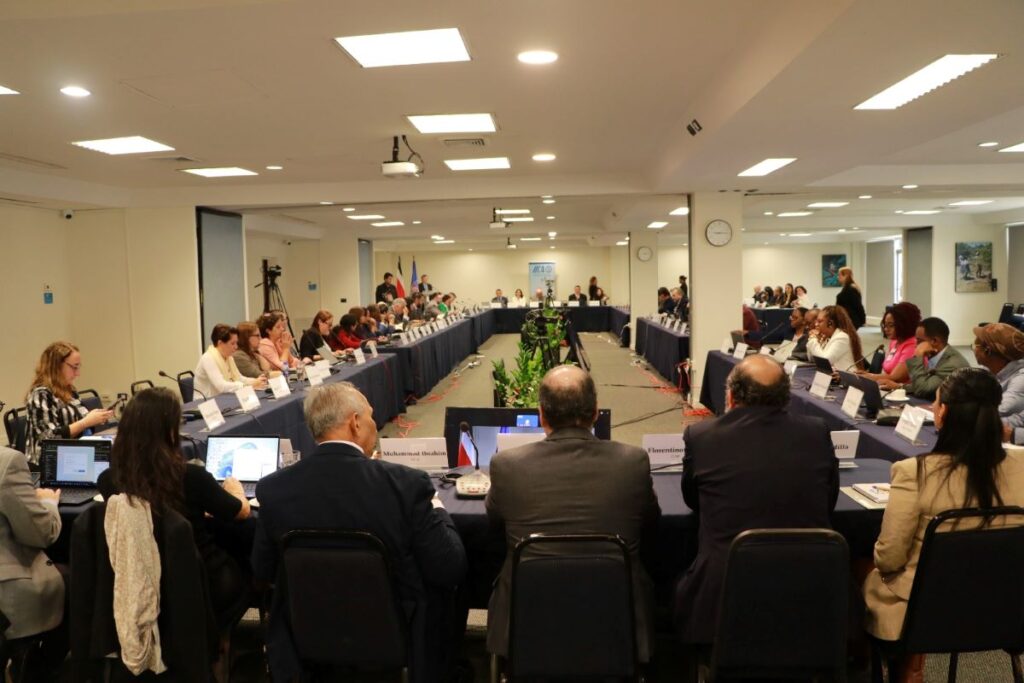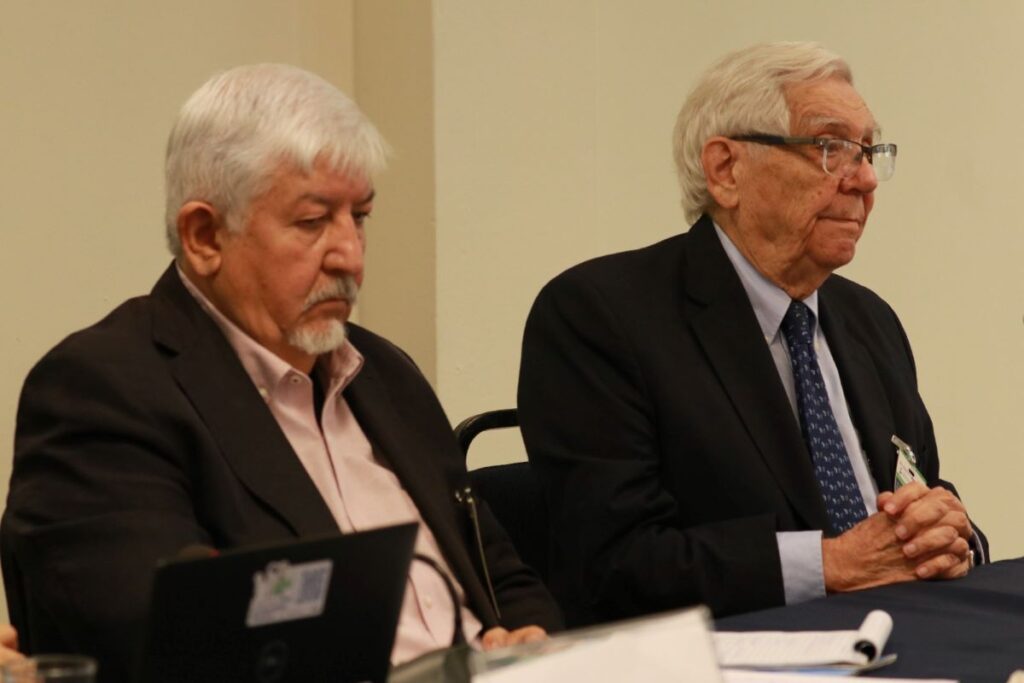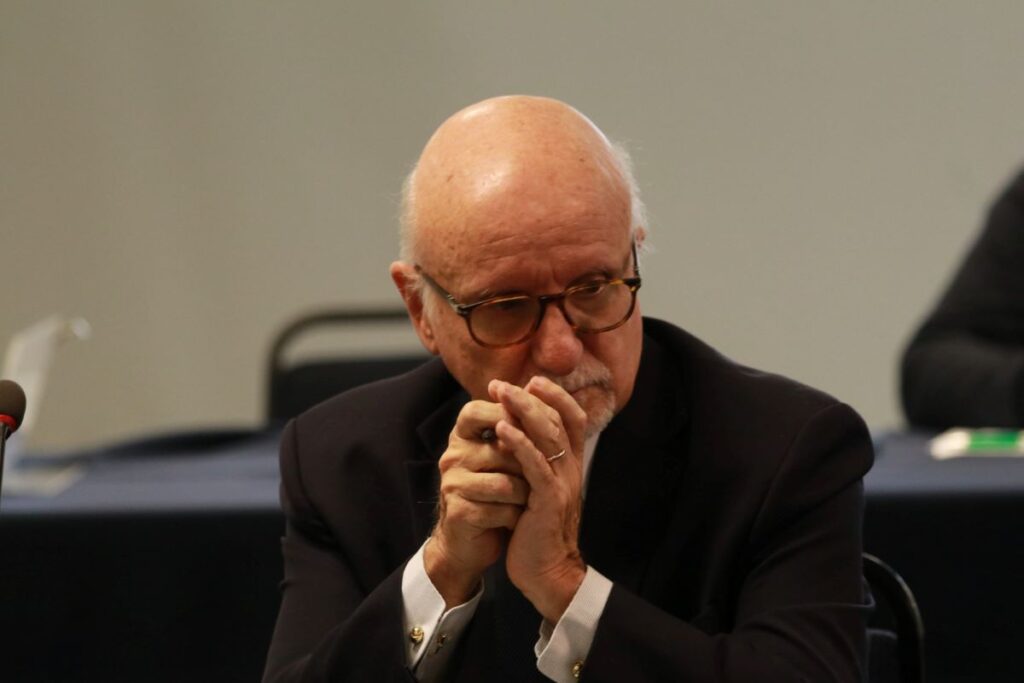
San José, 10 December 2024 (IICA) – The main international organizations in Latin America and the Caribbean convened at the headquarters of the Inter-American Institute for Cooperation on Agriculture (IICA) and stressed the need for a new generation of public policies to accelerate agricultural development in the region amidst an increasingly complex global context.
During a two-day workshop, representatives of these organizations discussed and designed strategies to promote productive efficiency, social equity, and resilience using evidence-based approaches, consensus building, and adaptation to emerging geopolitical and technological realities.
Topics included “globalization without governance”, the new demands of international trade, the fragility of multilateralism, and the associated implications for the agriculture sector, which is critical for regional development and closely linked to science, technology, innovation, industrial policies, and logistics. The agriculture sector also plays an essential role in Latin America’s global influence and positioning.
Participants agreed that international cooperation should serve as a catalyst for transformations through an integrated vision while respecting diverse national conditions. This approach should emphasize science-based decision-making and address financing challenges in light of fiscal constraints in the region.
Organizations participating alongside IICA included the Inter-American Development Bank (IDB), the World Bank, CAF-Development Bank of Latin America and the Caribbean, ECLAC, the Organization for Economic Cooperation and Development (OECD), the International Food Policy Research Institute (IFPRI), the Biodiversity-CIAT Alliance, the CGIAR, and FAO.
Officials responsible for public policy design and implementation across the Americas, as well as representatives from academia and the private sector, participated both in person and via videoconference.
“We must be proactive; enough of always reacting to events. We need to be constructive and pragmatic because these are challenging times, and we must help countries. But we won’t present a one-size-fits-all solution, as this transition is a journey”, stated IICA Director General Manuel Otero during his closing remarks, while praising participants for their discussions and debates.
Deputy Director General Lloyd Day noted, “In 30 years, we will need to feed 10 billion people, 2 billion more than today, according to projections. At the same time, we must reduce our environmental impact. We can achieve this, but it will require more research, science, innovation, and, importantly, more financing”.
Joaquín Arias, Coordinator of IICA’s Public Policy Observatory for Agrifood Systems (OPSAa) and the event’s organizer, congratulated the participants, noting that this platform for dialogue and exchange “strengthens a network across Latin America that we hope to continue nurturing”.
The Future of Agriculture
The event included a Forum on Geopolitics and International Agrifood Trade featuring Guillermo Valles, Uruguay’s ambassador to Brazil and former deputy foreign minister; Máximo Torero, Chief Economist at FAO and former World Bank director for Peru; and Osvaldo Rosales, former Director of Trade and Integration at ECLAC and expert in international economic relations.

IICA Director General Manuel Otero delivered the opening remarks, while Martín Piñeiro, Director of the Agrarian Affairs Committee of the Argentine Council for International Relations (CARI) and IICA Director General Emeritus, moderated the panel.
Panelists shared insights into how global transformations and weakening multilateralism are affecting agrifood trade and regional development.
They emphasized that understanding the characteristics and dimensions of these transformations is crucial for defining international integration strategies for the region, especially for net food-exporting countries.
The panelists highlighted the need for the region to diversify products and markets to capitalize on new trade conditions and adopt public policies that align with emerging productive opportunities.
They also pointed out that the new dynamics of agrifood trade would influence technology adoption, productivity, and agrarian structures.
Rosales discussed the decline in international trade dynamism observed since 2015, noting, “The global economy is growing less, and it’s no longer true that international trade grows faster than GDP”.
He also touched on how the Trump administration in the United States could impact agrifood systems through expected deregulation in environmental, energy, and financial policies.
Guillermo Valles remarked on the growth of the global population over the past 60 years. He added that, thanks to increased productivity as well as the fundamental role of trade, the per capita food and protein supply had also grown.
“We’ve seen accelerated growth in global food trade over the last 30 years due to reduced transportation costs and, above all, international cooperation. At present, we are seeing an internationalization of plant and animal product supplies. Moving forward, I foresee five major challenges: trade system fragmentation, logistical issues, market access, export competition, and domestic support”, he said.
Otero predicted that transformations in agriculture would accelerate, focusing on four key areas: production methods, agrarian structures, agriculture’s role in the economy and society, and the integration of the sector into international trade.
“Our region must anticipate changes and design appropriate strategies, policies, and governance models. It’s essential to understand where we are headed, even if doing so involves risks. We must strengthen the region’s leadership in supporting global food security, recognizing that this isn’t just about increasing exports but also about contributing to climate change mitigation, adaptation, and nature conservation”, Otero added.
Torero pointed out, “The world is becoming increasingly complex, filled with uncertainty and risk. While Latin America and the Caribbean have integrated more deeply into international trade in recent decades, this proportion began to decline in 2023, which is concerning. This reflects global shocks such as the COVID-19 pandemic”.
The Peruvian economist suggested that there is room to enhance intraregional trade, which would require establishing common phytosanitary standards and improving infrastructure.
“We must add value locally. We typically export commodities, but we need to focus on value addition, where technology will play a fundamental role”, Torero concluded.











